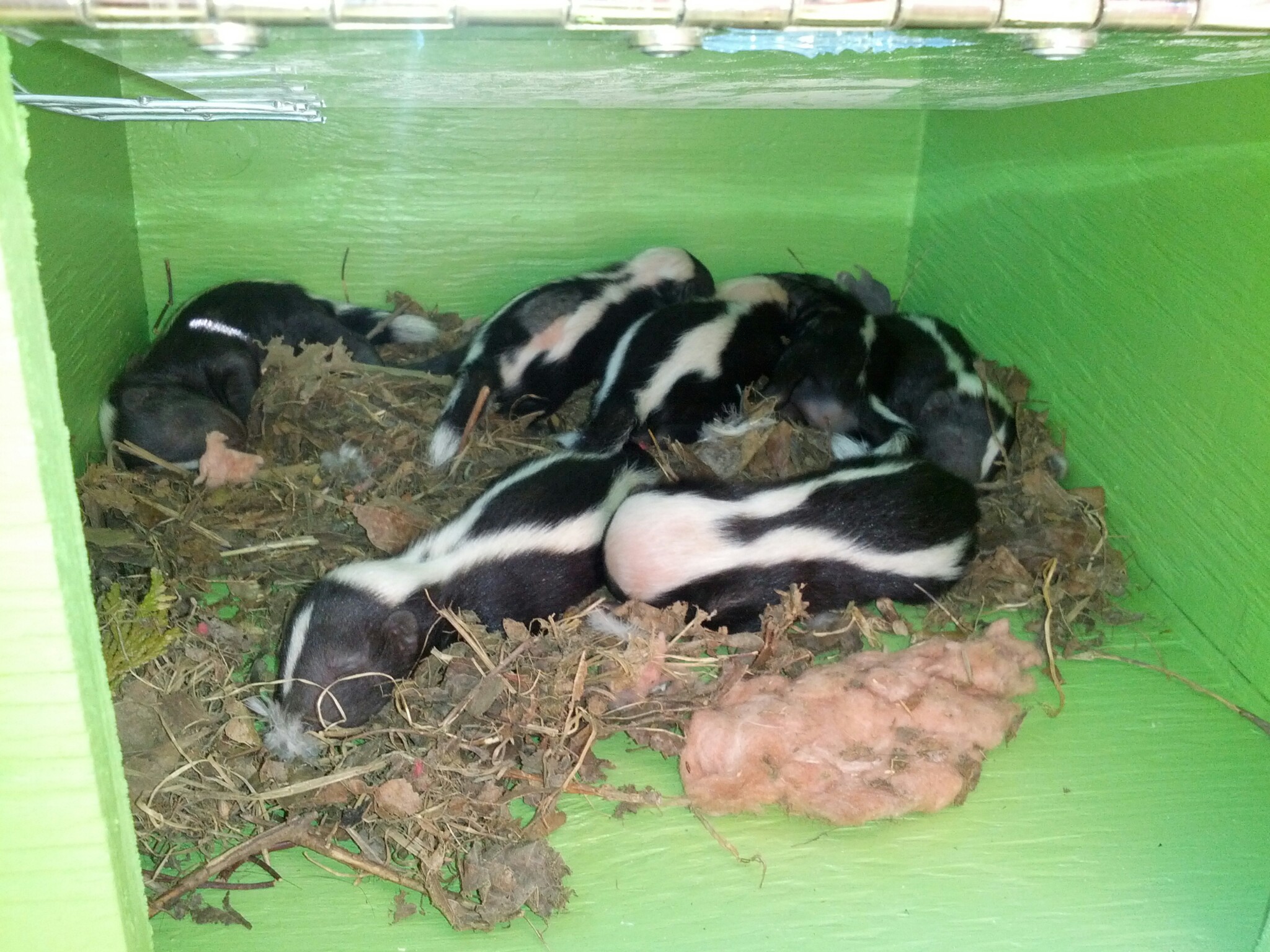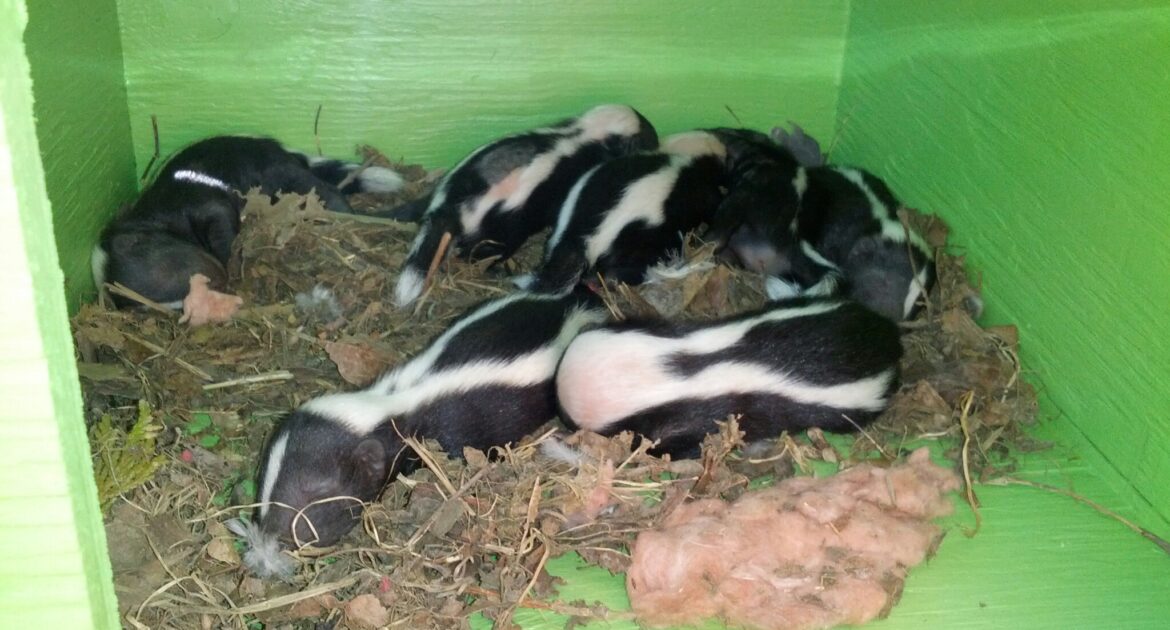Have you and your neighbors noticed the presence of several skunks or smelled a strong, persistent, “skunky” odor in your area lately? When is skunk mating season, anyway? Check out the following frequently asked questions to determine whether you need to wait it out or call wildlife control for effective, safe removal of your stinky friends.
When Is Skunk Mating Season?
For North American striped, hooded, and hog-nosed skunks, February and March is prime mating season. They will select their mates (skunks will have several throughout the season) and females will have their litters of skunk babies, or “kits”, in May and June.
You will notice an increase in that characteristic skunk smell during this time because females use it to ward off unwanted male attention. When females spray, they are essentially rejecting potential suitors!
How Many Babies Do Skunks Have Per Litter?
Female skunks will have four to seven (though occasionally more) babies per litter. Though these tiny kits may not seem invasive or harmful, they should be removed and relocated with their mother to prevent damage, including musky odors, to your property.
How Do You Identify a Pregnant Skunk?
A pregnant skunk may seem intent on finding a place to create a nest and have her kits. She will have a rounder belly, but you may not be able to get close enough to see this through her fur.
If you find a skunk digging under your fence, hiding in your shed, or burrowing under your porch, there’s a chance that she is not trying to cause harm — she may simply be pregnant and looking for a safe place to give birth to her young.
What Behavior Should I Look for in a Mother Skunk?
A mother skunk will be very protective of her young and will be prepared to defend them against potential predators (including you!). In the spring and early summer, when most baby skunks are born, they are not able to fend for themselves as they are born without being able to see or hear in the early weeks of their lives. They depend upon their mother to protect them.
Skunks communicate by spraying — but they also have a wide variety of communicative noises such as growling, screeching, and hissing (similar to cats). If you’ve found a skunk hiding on your property who is acting defensive or aggressive, be sure to call wildlife control in Madison first and do not approach her.
Where Do Skunks Have Their Babies?
Skunks, like other small mammals, make nests and have their babies in safe, warm, and dry spaces. Naturally, this can cause a problem for the homeowner. You may find litters of baby skunks in the following areas:
- Under your deck: These babies may be very noticeable here if the deck does not extend under the house. It’s best to call for humane removal rather than trying to relocate them by yourself.
- Inside your shed: You may not notice these baby skunks until it gets warmer and you open your shed for springtime gardening and lawn maintenance tasks.
- Under your porch: If your porch extends under the house, these litters may go unnoticed until there is a problem. You may notice a smell or noises caused by the babies and mother.
Call Us for Skunk Removal Assistance
If you find a group of kits on your property, it’s important not to touch them, move them, or startle the mother in any way. Remember, these animals are not pets and they will try to scratch and bite you if they feel threatened. Contact Skedaddle Humane Wildlife Control for prompt help in relocating a mother skunk and her babies!




